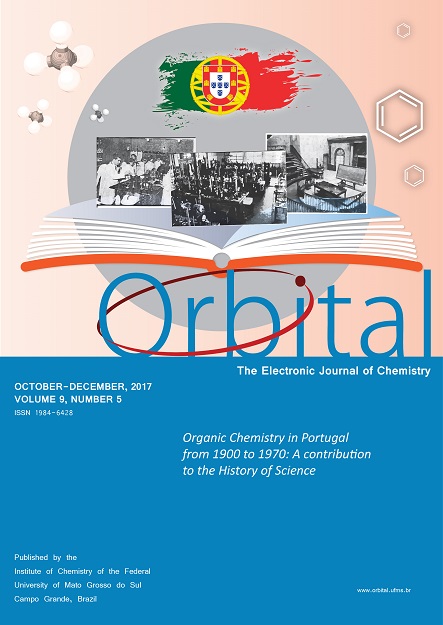FULL PAPERS
Theoretical Study of 1,3-Dipolar Cycloadditions Regioselectivity of Benzyl Azide with Glycosyl-O Acetylene Using Density Functional Theory (DFT)
Published 2017-12-29
Keywords
- 1,3-dipolar cycloadditions,
- 1,2,3-triazole; regioselectivity,
- DFT calculations,
- Parr functions
How to Cite
(1)
Ghaleb, A.; Aouidate, A.; Sbai, A.; Lakhlifi, T.; Maghat, H.; Bouachrine, M. Theoretical Study of 1,3-Dipolar Cycloadditions Regioselectivity of Benzyl Azide With Glycosyl-O Acetylene Using Density Functional Theory (DFT). Orbital: Electron. J. Chem. 2017, 9 (5), 337-343.
Abstract
A theoretical study of 1,3-cycloaddition has been carried out using density functional theory (DFT) methods at the B3LYP/6-31G* level. The regioselectivity of the reaction have been clarified through different theoretical approaches: Case of a Two-Center Process (Domingo approach), HSAB principle (Gazquez and Mendez approach), and the activation energy calculations. The analysis of results shows that the reaction takes place along concerted asynchronous mechanism and the isomer meta is favored, in agreement with the experiment results.
Downloads
Download data is not yet available.

